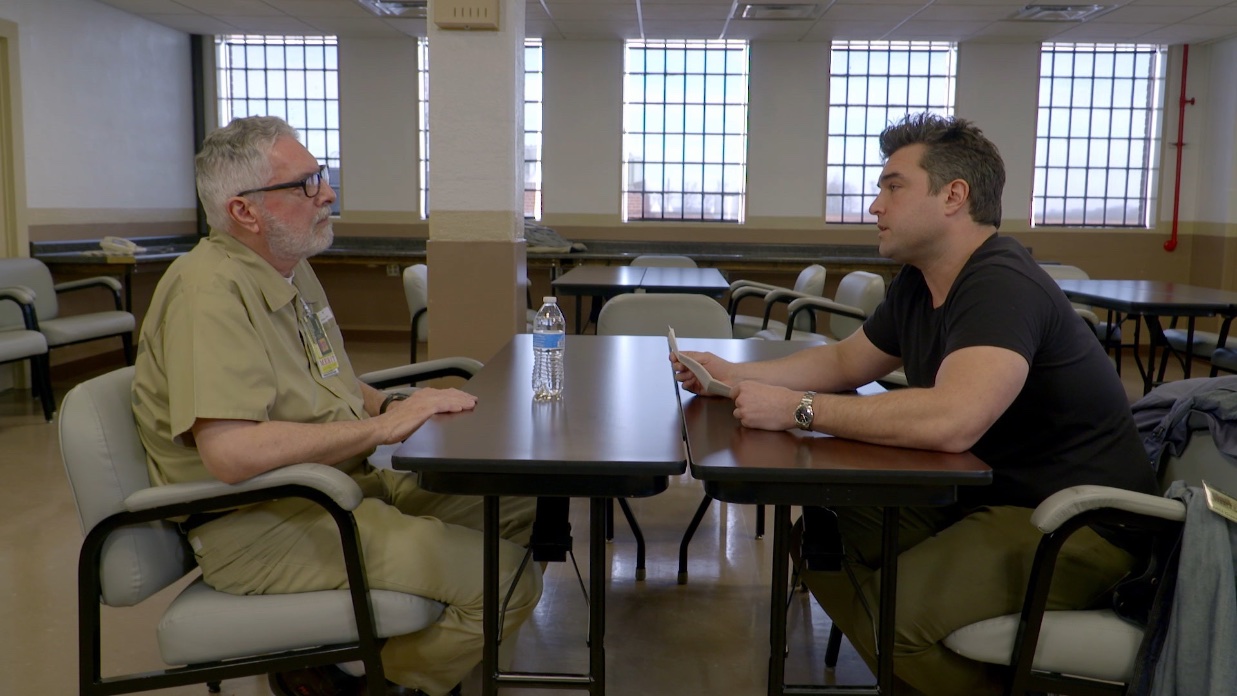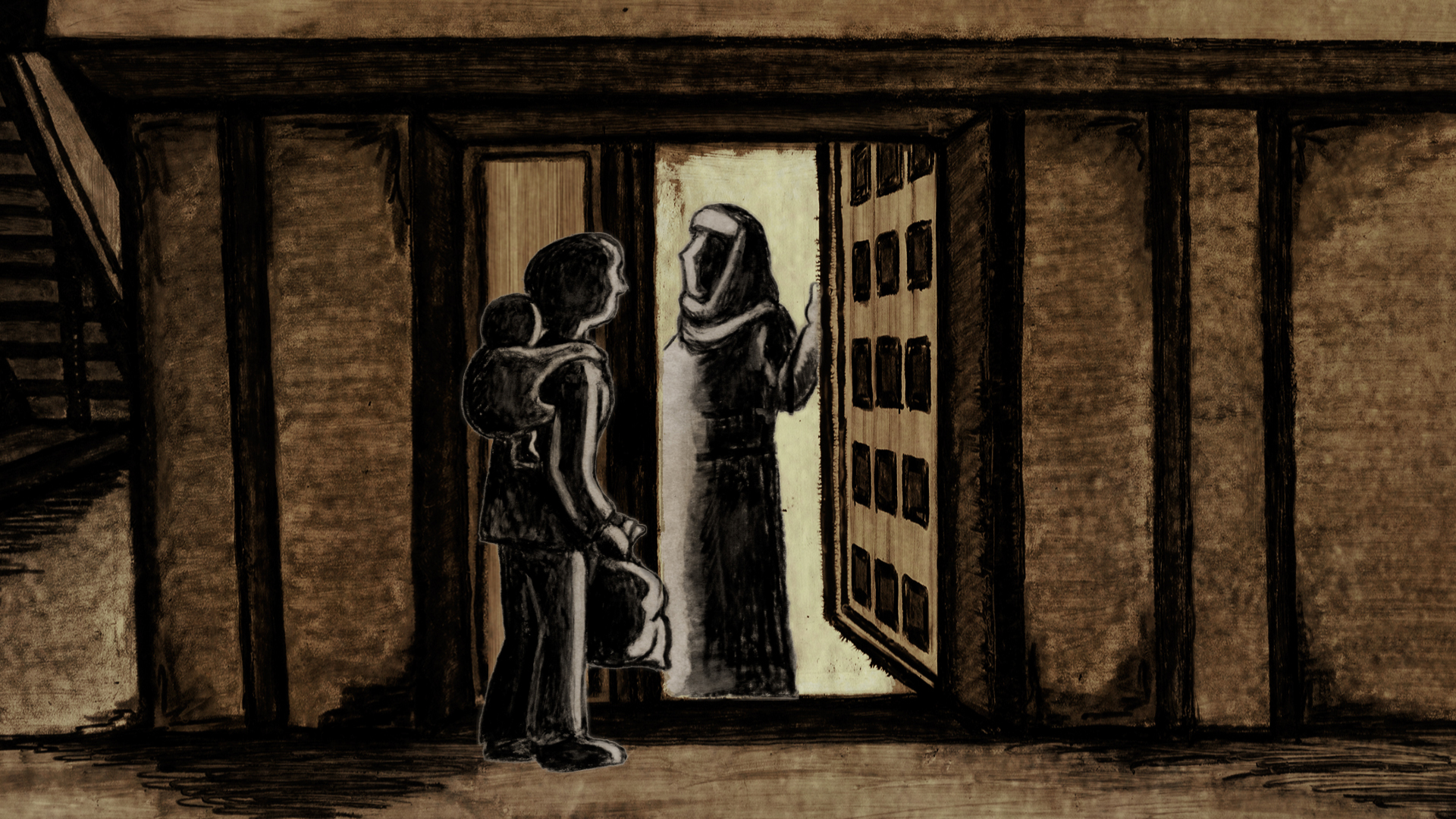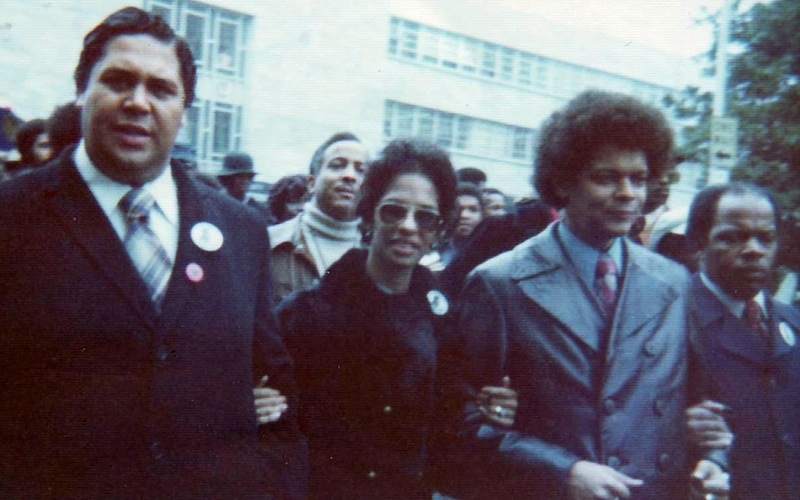By Glenn Dunks
The massive DOC NYC festival wrapped up in New York City last week, having showcased over 250 films and events. We have already looked at a documentary about a David Lynch classic as well as a series of films about the cities around us. We conclude with a wrap-up diving into some of the human portraits that will hopefully be making their way to cinemas, festivals and VOD over the next year.

A MURDER IN MANSFIELD
Barbara Kopple won an Academy Award for her first two films. That those two documentaries, Harlan County USA and American Dream were made 14 years apart becomes an even more impressive statistic when you consider just how prolific she has become since the late 1990s, often averaging two projects a year. This year is no different as she follows This is Everything: Gigi Gorgeous with A Murder in Mansfield. YouTube stars and true crime - Kopple certainly knows how to pick zeitgeist themes...
Despite the title, Kopple’s film is less about the actual murder that begins to unfold in the early passages of the film, but rather about one of the key witnesses and the aftermath of the ordeal. Beginning with rough television court TV footage of the murder trial of Noreen Boyle of Mansfield, Ohio, A Murder in Mansfield charts the return of Noreen’s son, Collier Landry, to Mansfield as he seeks to make contact with the family that shunned him and the imprisoned dad who he confronted as a child.
It’s a curious way to take the story, and certainly a refreshing one at a time when true crime explorations are becoming more common (and, truly, what could the traditional true crime version of this story do that The Staircase didn’t do 13 years ago). But while this is an admirable directorial choice, it’s ultimately one that proves to be less dramatically satisfying. Landry’s story ultimately feels a bit like spinning in circles, with little closure met by the end credits as Landry hits dead ends in most of his efforts. The centrepiece sequence, a prison confrontation between Landry and his father, should excite more than it does, but it is yet another sequence with a niggling sense of disappointment over it. It strikes me as quite obvious that this story didn’t pan out in quite the dynamic fashion that Kopple had hoped with a rushed narrative and lack of inquisitive probing. A footnote in a story that doesn’t quite get the attention it perhaps deserves.
NAILA AND THE UPRISING
The Israel and Palestine conflict is told from the point of view of a woman, a radical who fought persecution and deportation in the name of her homeland's independence. It's a simple thing, but changing the perspective opens up a whole new world of possibilities for director Julia Bacha whose Naila and the Uprising utilises beautiful animation and compelling archival footage to tell the history of Palestinian women and their relatively ignored efforts as their men vanished.

Bacha's 2009 documentary Budrus was a global success and it's not hard to see this one following in its footsteps. Similar in some ways to the female empowerment hit My Name is Malala, Naila succeeds where that one failed by not lazily resting on a subject who an audience is instantly expected to sympathise with. Bacha's film examines some of the thornier aspects of her role in the efforts of peace in the Middle East. Bacha couples this with surprisingly robust bursts of animation by Dominique Doktor and Sharron Mirsky that are full of wildly expressive brush-strokes and interpretations of moments in time. Waltz with Bashir by way of Persepolis. It is often scrappy, but earns its impact.
Naila and the Uprising will air on PBS in early 2018.
VIGILANTE: THE INCREDIBLE TRUE STORY OF CURTIS SLIWA AND THE GUARDIAN ANGELS
David Wexler’s Vigilante is sparse. What could be a film-hobbling choice to focus so much on a single interview of its subject actually becomes its greatest asset as it details the life of Curtis Sliwa. He was a McDonald’s night manager who took it upon himself to protect his Bronx neighbourhood – and soon enough, instigating neighbourhood protection efforts in larger swathes of New York and America as a whole – by creating the Guardian Angels, beloved by some (mainly the people on the streets of New York) and loathed by others (like Ed Koch and the police force who saw them as criminals and thugs).
Sliwa is front and center for most of Vigilante, the camera cropped tightly on his face as he recalls the stories that made him popular fodder for newspapers and television reports. The enthusiasm with which he goes into his tales of citizen arrests on the rough and tumble streets of 1980s New York is infectious – Wexler is wise to let him speak predominantly for himself, intercut with wonderful archival footage and photographs of his oft-rhapsodized era of subterranean nightmare. Segues into his short-lived time as a TV talk show host and his connection to Walter Hill’s classic The Warriors add additional colour to this entertaining and remarkably upbeat documentary. Little effort is made to offer a wider perception of Sliwa and the Guardian Angels, but the more lighthearted tone of Vigilante, even as its subject recounts in graphic detail the violent inflicted upon him, mean its one-sided view is less of a hindrance than it would have been to a different, more comprehensive film (of which I’d still like to see).
MAYNARD
A standard bio-doc, but an educational one of a figure whose story is relevant to today’s political atmosphere. In a time where everyday people are becoming motivated to enter politics to change the course of things, Maynard is an appropriately timed film that charts the life of Atlanta’s first African American mayor, Maynard Jackson. Sam Pollard’s film has little in the way of directorial bells and whistles, preferring to stay the course in showing his early life as a high achiever, his relentless political ambition, and the difficulties he faced over three terms.

What is perhaps most impressive is the grand picture that the viewer gets of Atlanta as a changing city. In some ways, the film is more interesting when watched in this capacity with Maynard’s life and career spanning decades of a city’s ups and downs from riots and serial killers to Olympic renewals and racial equality. It's great terrain for Oscar-nominated Sam Pollard, and while Maynard is more respectful than truly exciting, There's something to be said about a film that is as generous to its subject as its subject was to others.